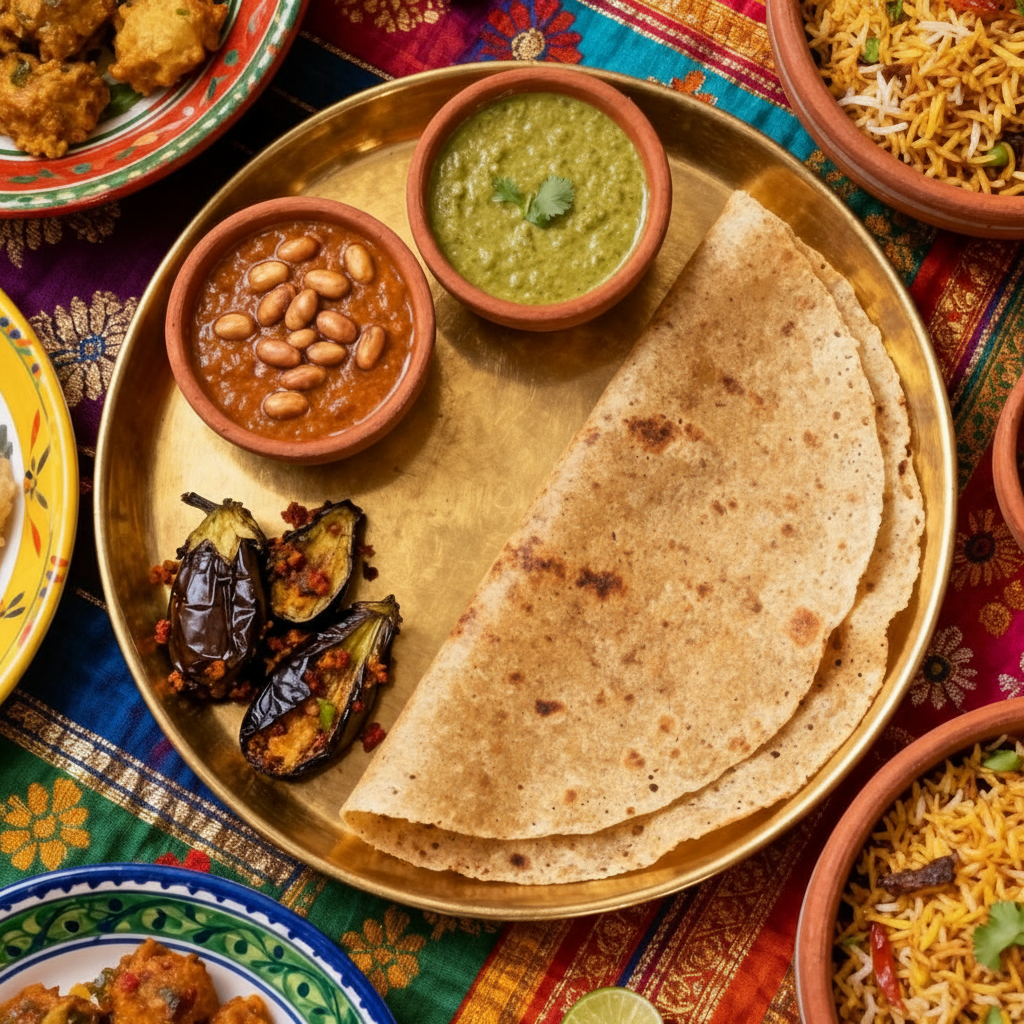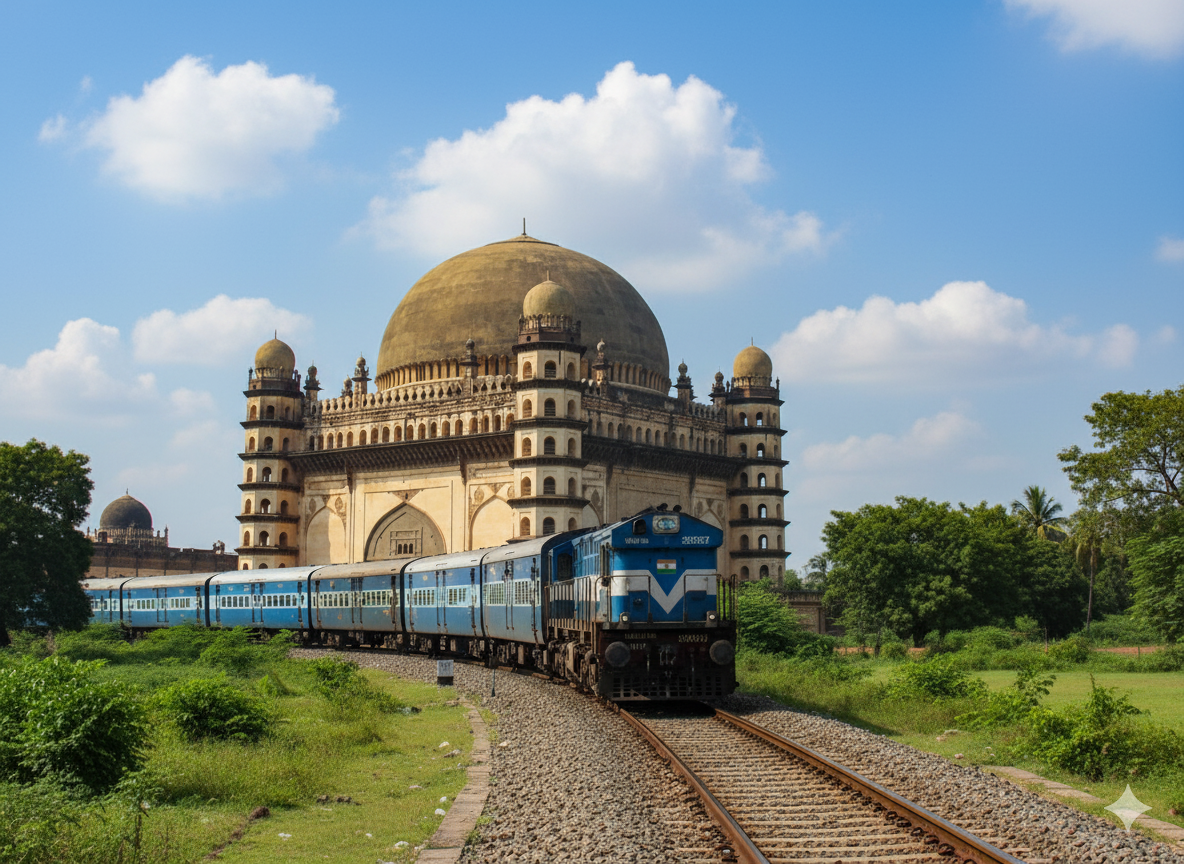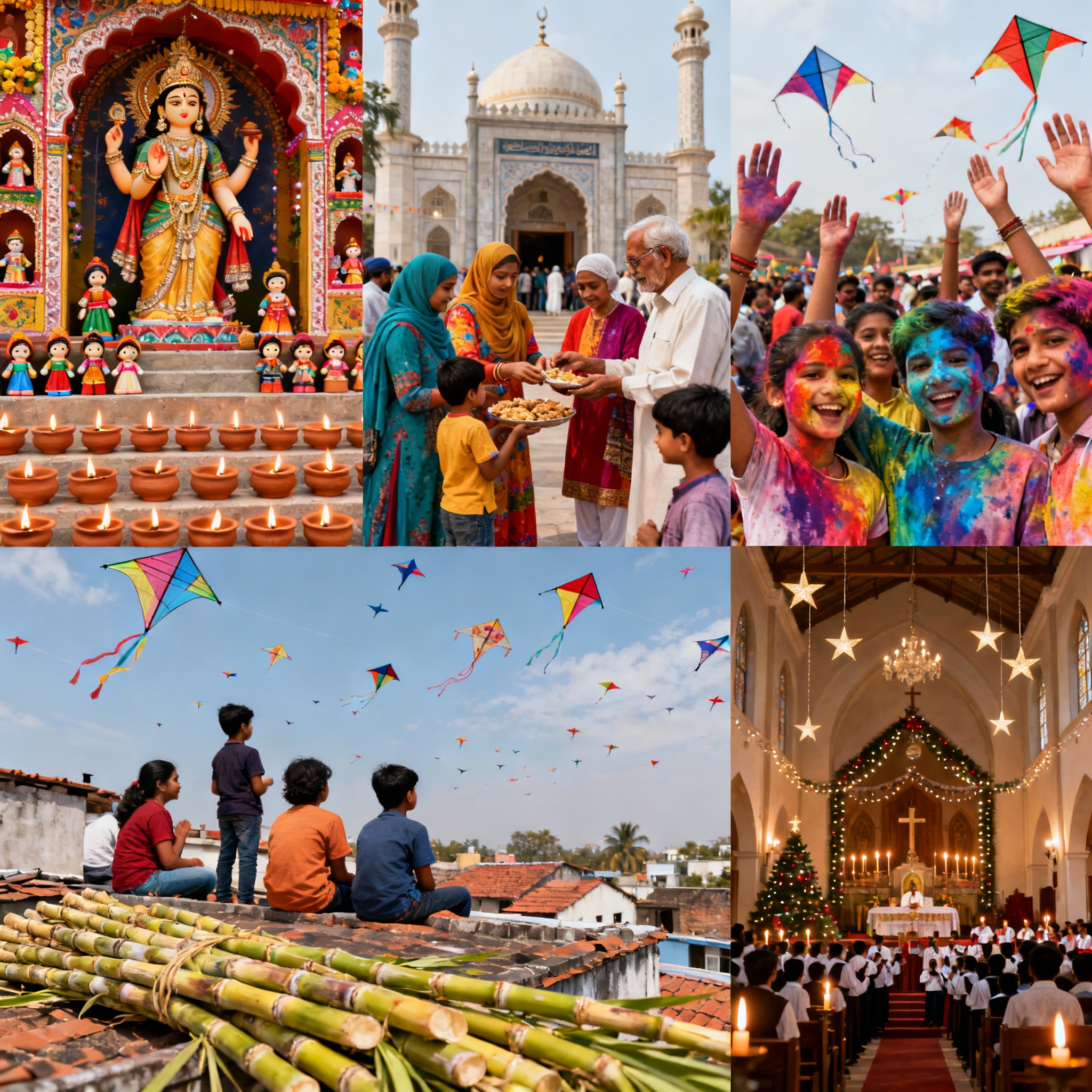Flavours of Legacy: Vijayapura’s Traditional Food as Living Cultural Heritage

TL;DR: Vijayapura’s traditional cuisine reflects centuries of cultural convergence between Deccan and North Karnataka traditions. Signature dishes like jolada rotti, shenga chutney, and Vijayapura’s distinct biryani continue to define the region’s food identity, sustained through family recipes, local markets, and festival traditions.
Introduction
In the historic streets of Vijayapura, where architectural marvels stand as reminders of a storied past, another legacy persists quietly but powerfully—the region’s traditional food culture. The culinary traditions of Vijayapura, formerly known as Bijapur, represent more than sustenance; they embody the cultural synthesis that has shaped North Karnataka for centuries. From the robust flavors of jolada rotti paired with fiery chutneys to the aromatic biryanis that trace their lineage to medieval kitchens, Vijayapura’s food heritage continues to nourish both body and community identity.
Historical Roots of Vijayapura’s Cuisine
Vijayapura’s culinary landscape has been shaped by successive waves of cultural influence. The Adil Shahi dynasty, which ruled the region from 1490 to 1686, introduced Persian and Deccani culinary techniques that merged with the established local agricultural traditions of North Karnataka. This confluence created a distinctive food culture that honors both the jowar-based staples of the Deccan plateau and the refined cooking methods brought by courtly traditions.
According to Karnataka tourism documentation, the region’s food heritage reflects its position as a historic crossroads, where trade routes facilitated the exchange of ingredients, techniques, and culinary philosophies. The result is a cuisine that balances rustic simplicity with occasional sophistication, utilizing locally abundant ingredients while maintaining connections to broader culinary traditions.
Signature Dishes and Their Cultural Significance
Jolada Rotti and Accompaniments
At the heart of Vijayapura’s traditional diet is jolada rotti—unleavened flatbread made from jowar (sorghum) flour. This staple represents the agricultural reality of the region, where jowar cultivation has sustained communities for generations. The preparation of jolada rotti remains an art form, with experienced cooks achieving the precise thickness and texture that distinguishes excellent rotti from the ordinary.
Traditionally, jolada rotti is accompanied by shenga chutney (peanut chutney), yennegai (stuffed brinjal), and various regional curries. These accompaniments vary seasonally, reflecting the agricultural calendar and the availability of vegetables in local markets.
Vijayapura Biryani
While biryani is found throughout India, Vijayapura’s version carries distinctive characteristics that set it apart. Local variations often feature less spice intensity than Hyderabadi versions but maintain complex layering of flavors. The preparation typically involves locally sourced mutton or chicken, with rice varieties selected for their ability to absorb flavors while maintaining texture.
Food historians note that Vijayapura biryani represents the adaptation of courtly dishes to local tastes and available ingredients, creating a regional variant that honors both its historical origins and contemporary preferences.
Festival Foods and Seasonal Specialties
Religious and cultural festivals in Vijayapura bring specific culinary traditions to prominence. During Ramadan, the streets come alive with vendors offering traditional sweets and savory items. Festivals like Ugadi and Makar Sankranti feature their own distinctive preparations, from holige (sweet flatbread) to ellu-bella (sesame and jaggery mixture), each carrying symbolic and nutritional significance.
Markets and Culinary Spaces
Vijayapura’s food culture thrives in its traditional markets and specialized food districts. The city’s vegetable and spice markets serve as gathering points where agricultural producers, home cooks, and professional chefs source ingredients. These markets maintain direct connections between rural agricultural communities and urban consumers, sustaining both livelihoods and culinary authenticity.
Local observers note that these markets also function as informal knowledge centers where cooking techniques, ingredient selection methods, and recipe variations are shared across generations. The morning markets, in particular, offer insights into seasonal availability and traditional ingredient preparation.
Preservation Challenges and Adaptation
Like many traditional food cultures, Vijayapura’s culinary heritage faces challenges from changing lifestyles and economic patterns. The time-intensive nature of traditional cooking methods, particularly for items like hand-ground chutneys and slow-cooked meat preparations, competes with contemporary time constraints.
However, there are also movements toward preservation and revival. Some restaurants in Vijayapura have begun specializing in traditional preparations, while home cooks maintain family recipes that might otherwise be lost. According to recent coverage in The Indian Express, there is growing recognition across Karnataka of the value of preserving regional culinary traditions as part of broader cultural heritage.
Food as Community Identity
In Vijayapura, traditional food serves functions beyond nutrition. Shared meals, particularly during festivals and family gatherings, reinforce community bonds and transmit cultural values. The communal aspect of food preparation—from grinding spices collectively to the distribution of festival foods among neighbors—maintains social connections that might otherwise weaken.
The practice of specific dishes on particular occasions creates a culinary calendar that structures community life. These food traditions provide continuity with the past while adapting to present circumstances, allowing contemporary residents to maintain connections with historical identity.
Contemporary Relevance and Future Prospects
Vijayapura’s traditional food culture demonstrates both resilience and adaptability. While some preparation methods have been modified for convenience, core recipes and flavor profiles remain largely intact. The younger generation shows varying degrees of engagement with traditional cooking, with some enthusiastically maintaining family culinary practices while others adopt more convenient alternatives.
Tourism represents both opportunity and challenge. Increased visitor interest in authentic regional cuisine can support preservation efforts and provide economic incentives for maintaining traditional food businesses. However, commercialization also risks standardization that might diminish the diversity and authenticity that makes Vijayapura’s food culture distinctive.
Conclusion
Vijayapura’s traditional food represents living cultural heritage—neither museum piece nor unchanged artifact, but a dynamic tradition that continues to evolve while maintaining connections to its historical roots. From the daily preparation of jolada rotti in home kitchens to the festival dishes that mark communal celebrations, this culinary tradition sustains both individual health and collective identity.
The flavors of Vijayapura tell stories of agricultural adaptation, cultural synthesis, and community resilience. As the city continues to develop, the preservation of these food traditions—through conscious practice, documentation, and intergenerational transmission—remains essential not just for maintaining culinary diversity, but for sustaining the cultural fabric that makes Vijayapura distinctive.
Call to Action: Experience Vijayapura’s culinary heritage firsthand by visiting local markets and traditional eateries, supporting food businesses that maintain authentic preparation methods, and engaging with the cultural contexts that give these foods meaning.
References
- Karnataka Tourism Department. (2024). “Culinary Heritage of North Karnataka.” Official Karnataka Tourism Portal.
- The Indian Express. (2025). “Preserving Regional Food Traditions Across Karnataka.” Cultural Heritage Section.
Article Summary: This feature explores Vijayapura’s traditional food culture as a living expression of the region’s historical and cultural identity, examining signature dishes, market traditions, and the ongoing efforts to preserve culinary heritage amid contemporary changes.




